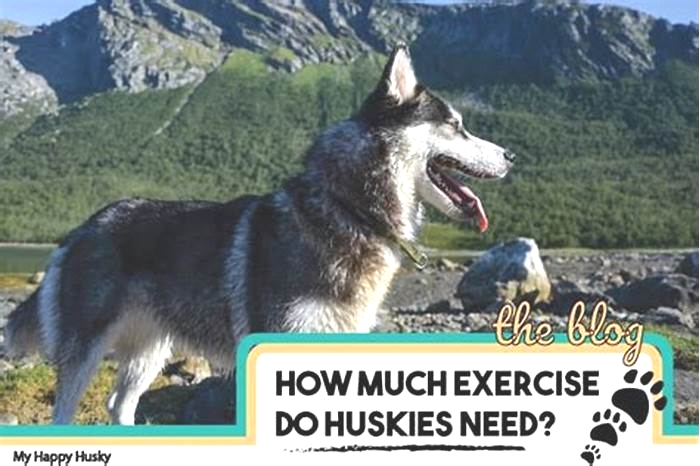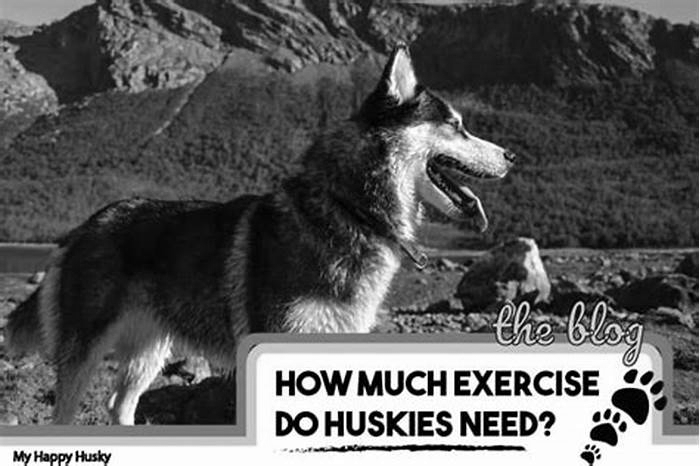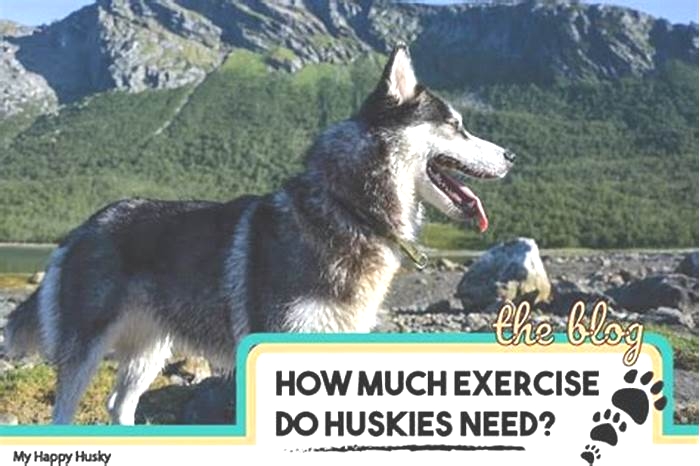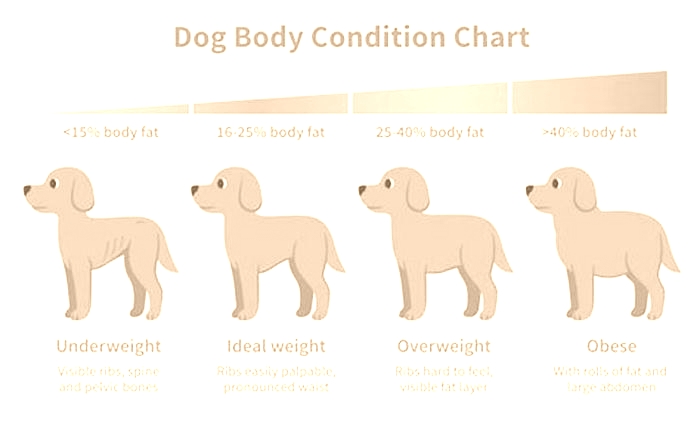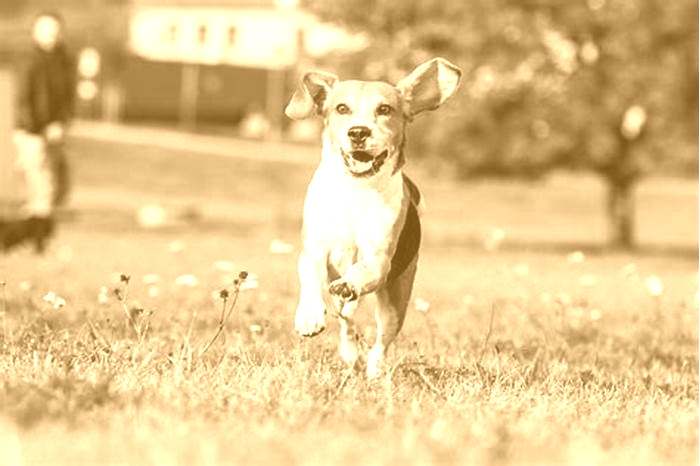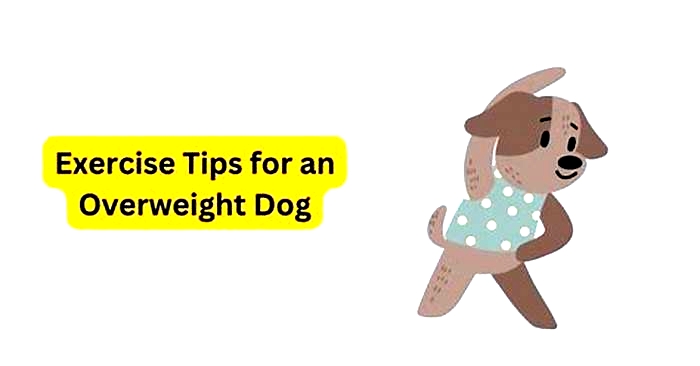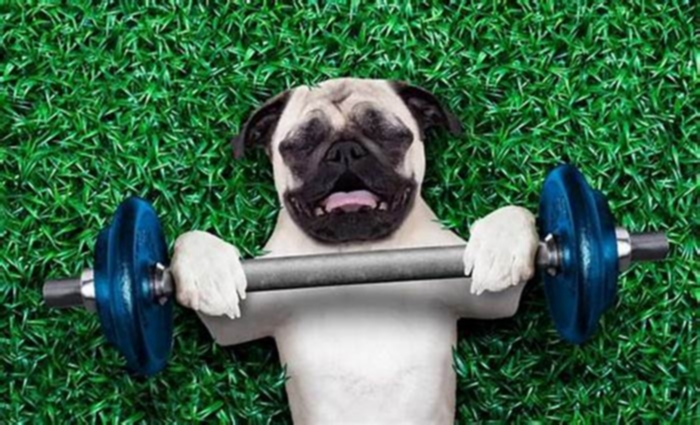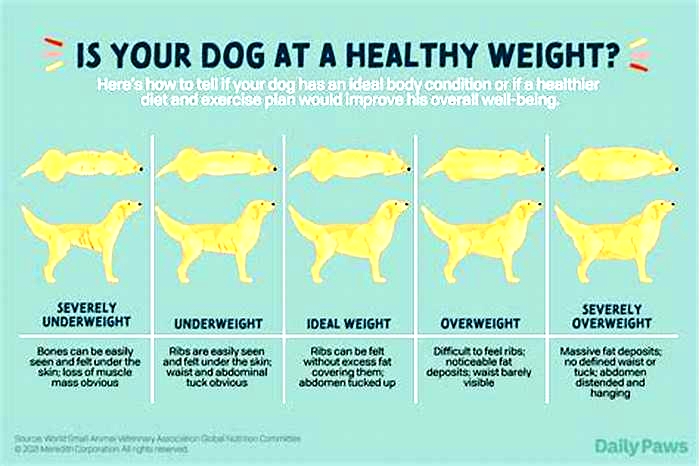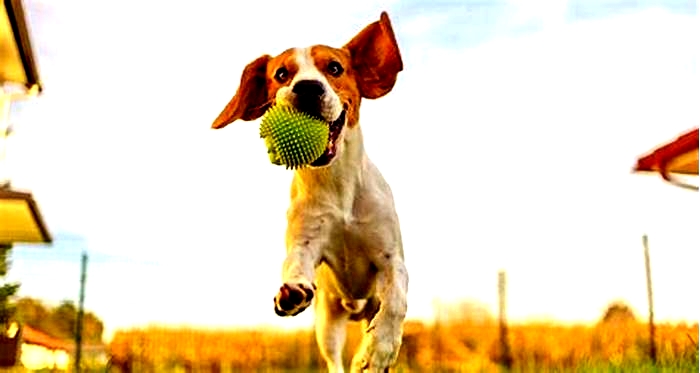What happens if a Husky doesn t get enough exercise
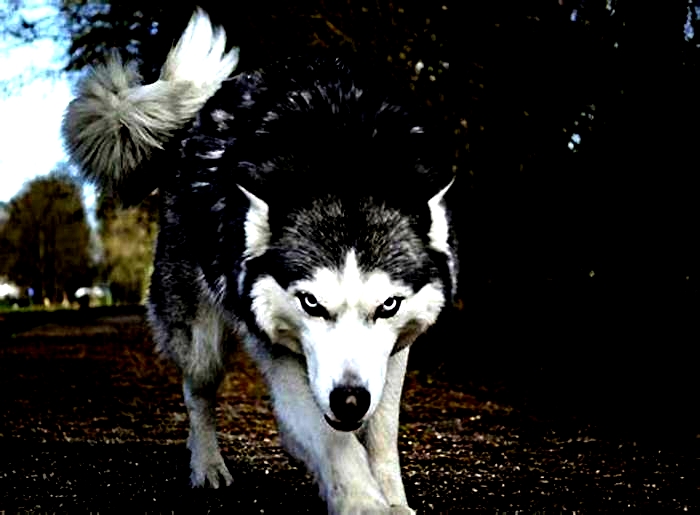
How Much Exercise Does A Husky Need? (Pup, Adult & Senior)

Siberian Huskies are incredibly energetic and athletic dogs that require regular exercise. Huskies were originally bred for their endurance and strength, and they have an innate drive to run, play, and explore.
In this article, we will take a closer look at the exercise needs of a Siberian Husky, including how much activity they require, what types of exercise are best, and how to keep your Husky healthy and happy through regular physical activity.
Whether you are a first-time Husky owner or a seasoned pro, this article will provide valuable insights and tips to help you keep your furry friend happy and healthy.
Husky Essentials
Siberian Husky EssentialsWe understand that huskies are unique and require special care, so weve created this one-stop shop to help you find the must-have items for your furry friend.
Supplies:- Grooming Tools
- Dog Food, Treats & Supplements
- Toys & Enrichment
- Training Aids
- Comfort & Safety
How much exercise does a Husky puppy need?
Husky puppies generally need about 30 minutes of exercise, spread out throughout the day.
Like all young dogs, Husky puppies have nearly endless amounts of energy and a strong need for regular exercise. However, it is important not to overdo it, as puppies are still growing and their bones and joints are not yet fully developed.
As a general rule, a Husky puppy should get at least 30 minutes of exercise per day, spread out over a few short sessions. This can include activities such as walking, playing in the yard, and running or playing with other dogs. Young puppies will most likely not be able to keep up on long hikes or runs and are better served exercising in short increments.
It is also important to provide your Husky puppy with plenty of opportunities for mental stimulation, such as puzzle toys and training games, as this can help tire them out and keep them happy and healthy. As your puppy grows and becomes more active, you can gradually increase the amount and intensity of their exercise.
Continuing regular exercise will help reduce the chances of a husky having health problems.

How much exercise does an adult Husky need?
Adult Huskies generally need about 60 minutes of exercise per day. But they would benefit up to 2 hours of exercise per day, depending on their fitness level.

Again, depending on their fitness level, it is best to spread their exercise out throughout the day and break it into smaller sessions to help tire your husky out.
If you have a Miniature Husky, they will also need about 60 minutes of exercise per day. Note that because they are smaller, they wont be able to exercise as much as the standard husky.
How much exercise does a senior Husky need?
Senior Huskies need at least 30 minutes of exercise per day.
Senior Huskies may need slightly less exercise than adult dogs, as they may have reduced energy levels and may be less able to handle intense physical activity.
However, it is still important to provide your senior Husky with regular exercise, as this can help them stay healthy and maintain their mobility.
As a general rule, a senior Husky should get at least 30 minutes of exercise per day, spread out over a few short sessions. However, this can vary depending on the dogs overall health and fitness level.
Why is exercise beneficial for a Husky?
Regular exercise is part of taking care of any husky. Regular physical activity can help skinny huskies gain weight via muscle, overweight huskies lose weight via additional calorie expenditure and simply to maintain a healthy weight, support strong bones and improve overall cardiovascular health, for both you and your dog. Ultimately, increasing your huskys lifespan.
Moreover, exercise can help prevent behavioral problems in dogs. Huskies are intelligent and energetic dogs that need regular mental and physical stimulation to stay happy and healthy.
Without enough exercise, Huskies may become bored or restless, which can lead to weird behavior, temper tantrums, and destructive or problematic behavior. Its one of the reasons why Huskies are so dramatic.
Exercise can also help improve a Huskys mental well-being and prevent depression in huskies. Regular physical activity can help reduce stress and anxiety and can improve a Huskys mood and overall sense of well-being. Exercise can also provide a sense of accomplishment and fulfillment.
We have experienced this firsthand with one of our Huskies, Mishka. She seems so much happier after a run.
Exercising before training your Husky is also beneficial as it helps them perform better during their training sessions. Physical activity can help tire a dog out and make them calmer and more willing to focus. When a dog is well-exercised, it is less likely to be distracted by its surroundings and more likely to pay attention to the trainer and respond to commands.
Huskies are high maintenance, so make sure you are prepared for their exercise needs!
Best ways to get exercise for a Husky
Walking or running
Walking or running with a husky are probably two of the first things that come to mind when thinking about exercising your Husky. These activities provide a good cardiovascular workout and can also help to stimulate a Huskys mind by providing new sights, sounds, and smells.
Before taking them for a walk, learn how to train your Husky to walk on a leash.
Hiking
Similarly, Huskies are also well-suited to hiking, as they have the stamina and strength to handle long distances and rugged terrain. Hiking can provide a more challenging and varied workout than walking or running and can help to keep your Husky engaged and motivated to continue exercising.
Play with your Husky
One of the easiest things you can do to get your Husky some exercise is simply to play in the yard! A large, securely fenced yard can provide a great place for your Husky to run and play. This can include activities such as fetch and tug-of-war, as well as chasing toys or other dogs.
Must read: Do huskies like to play fetch?
Dog sports
Additionally, Huskies are well-suited to a variety of dog sports, such as agility, obedience, rally, and sledding. These activities provide a fun and challenging way for your Husky to exercise and stay engaged and can also help to improve their training skills. You can practice some of these sports in your own backyard, or you can take your dog to classes and practice somewhere in your community!
Further reading: How fast can a husky run?
Swimming
Swimming is a perfect low-impact exercise that can provide a good workout for your Husky while also helping to cool them down on hot days. Many Huskies enjoy swimming and may even take to it naturally. Senior Huskies especially benefit from swimming since it is easier on their joints and not as strenuous as a walk or run.
Puzzle toys
While not always a physical activity, puzzle toys, and training games are a great way to provide your Husky mental stimulation, which can help tire them out and prevent boredom. These activities can also help to improve your Huskys training skills and problem-solving abilities.
Puzzle toys are going to be especially important for huskies that live in apartments. If this is you, you absolutely need puzzle toys.
Companions
If your husky has a companion, you wont need to exercise them as much. Having a friend to play with every day reduces their exercise and mental stimulation needs.
Can my Husky exercise too much?
Yes, its possible to have much too much of a good thing. Even humans can damage their hearts from too much exercise! So dont push your Husky to its limits every day, especially if they are just a young pup or if they are a senior.
If your Husky is panting more than normal, it means they are exhausted and trying to cool down. So make sure they arent overdoing it and make sure they are getting enough rest.
Final takeaways about how much exercise Huskies need
As a general rule, adult Huskies should get at least 60 minutes of exercise per day, while puppies and seniors may require slightly less.
There are many ways to exercise a Husky, including walking or running, hiking, playing in the yard, participating in dog sports, swimming, and providing puzzle toys and training games.
By providing your Husky with regular exercise and mental stimulation, you can help them stay healthy, happy, and engaged. Huskies are good pets, but only if you can meet their needs.
How do you exercise your Husky?
Share your experience in the comments below.
FAQ about Husky exercise needs
How much exercise does a husky need?
Huskies are a high-energy breed and require a lot of exercise to keep them happy and healthy. It is recommended that they get at least 1 hour (ideally 2 hours) of exercise every day to keep them physically and mentally stimulated.
What are some exercise ideas for huskies?
There are many ways to exercise a husky. Some popular activities include taking them on long walks, playing fetch with a frisbee or ball, going for runs or hikes, participating in agility training, or even taking them to a dog park where they can socialize and play with other dogs.
How much exercise do Siberian huskies need compared to other dog breeds?
Siberian huskies are known for their high energy levels and require more exercise than many other dog breeds. They were bred as working dogs and have a lot of stamina, so they need plenty of physical activity to burn off their energy.
What happens if a husky doesnt get enough exercise?
If a husky doesnt get enough exercise, they can become bored, restless, and may exhibit destructive or bad behavior. They may resort to digging, chewing furniture, or even howling excessively. Regular exercise is essential to keep them physically fit and mentally stimulated.
How often should I walk my husky?
A husky should be walked at least once a day, but ideally, they should be getting a minimum of 1-2 hours of exercise every day. This can be broken up into multiple walks or supplemented with other activities.
How long should each walk with a husky be?
Your walks with your husky should be at least 1 hour long.
Can I let my husky off-leash during exercise?
It is generally not recommended to let a husky off-leash unless they are well trained, and you are in an enclosed area like a fenced-in yard or a secure dog park. Huskies have a strong prey drive and may be prone to running off if they catch sight of something interesting. Its important to ensure their safety by keeping them on a leash during exercise. If you want to let your husky off-leash, make sure you know how to train a husky to come when called.
What are some mental stimulation exercises for huskies?
In addition to physical exercise, huskies also need mental stimulation. Some activities that provide mental stimulation for huskies include puzzle toys, obedience training, scent games, and teaching them new tricks.
How do I know if my husky is getting enough exercise?
If your husky is exhibiting good behavior, seems content and relaxed, and isnt engaging in destructive behavior, it is a good indication that they are getting enough exercise. A tired husky is a happy husky!
Can huskies be exercised in hot weather?
Huskies are generally better suited for cooler temperatures since they have a thick double coat. However, they can still be exercised in hot weather as long as you take precautions. Avoid exercising them during the hottest part of the day, provide plenty of water breaks, and watch for signs of overheating such as excessive panting or lethargy.
Why Is My Husky Not Eating? Here Are The 8 Potential Reasons
Huskies arent necessarily picky, but like any dog, they may experience appetite problems. This can cause panic among their owners, especially if the doggo is refusing to eat for days. To help you address this problem, we answer this question: why is my Husky not eating? We also included solutions you can try to stimulate your pets taste buds.
Remember that each dog has unique preferences over food. Some Huskies dont mind eating the same thing for years while others will get tired of their food after a few months.
Its all about understanding what your Husky likes and trying different products until you found one that matches your pets taste.
Why is my Husky not eating?
Dogs can develop different eating habits over time. But if your Husky isnt eating for some reason, the following might explain why:
1. Your Husky doesnt like the food.
The most common reason why Huskies wont eat is the food itself. Your doggo probably dislikes the taste or texture of the food youre giving.
Moreover, Huskies can be finicky eaters. At some point, a Husky may start to get bored of its food and refuse to eat it unless you give them a new formula.
Its possible that your dog prefers a tastier and more aromatic food product. Aside from that, your dog might prefer wet food over dry or vice versa. In this case, you need to try several food products or cycle them to prevent your Husky from getting tired of it.
In addition, some Huskies will stop eating a specific food product if their stomach got upset with it. And even if the food isnt the culprit, your Husky may associate the bad experience with the taste and odor of the food.
Overall, picky eating is common in dogs and is one of the easiest reasons to solve. Nevertheless, you should still get other possible reasons on this list ruled out just to be sure.
2. Your Husky doesnt have a fixed feeding schedule.
Dogs thrive in a routine, so if your Husky doesnt have a fixed feeding schedule, it may start to refuse food.
Failure to follow a feeding schedule means that your Husky will be grazing for food throughout the day. As your doggo gets small amounts of food all day, it will not be hungry once you decide to feed it.
Aside from that, tossing table scraps and leftovers to your dog will also impact their appetite. In the long run, your doggo may refuse actual meal times and prefer to wait for alms by the dinner table.
Just like any task, its important to train your Husky to follow a feeding schedule. This way, the pooch wont beg for food all day. Aside from that, a fixed feeding schedule also means that your Husky will also have a normal and regular bowel movement.
Overall, an adult Husky should be fed two large meals: one in the morning and another in the evening. For puppies, a days worth of food must be divided into 4 to 5 servings.
3. Your Husky is anxious.
Have you ever been in a very stressful situation? You cant eat properly, right? This is the same thing when it comes to dogs.
Huskies are sensitive dogs and they may grow anxious without ample physical and mental stimulation. Also, Huskies that are left alone for long periods will develop separation anxiety. This problem can impact a dogs appetite, not to mention that it could also branch into other behavioral issues.
Huskies can develop anxiety if you moved into a new home, got another pet, a member of the family passed away, and so on. These sudden changes will disrupt a dogs routine, which will wreak havoc on their behavior.
Usually, anxiety-related hunger strikes wont last long. At some point, your Husky will be so hungry it will start to seek food on its own. Still, you should help your pet cope, so it wont suffer from further stress.
4. Your Husky doesnt get enough exercise.
Lack of exercise can also put your Husky off its food. Its because understimulated Huskies wont burn enough energy, which means they wont be as hungry as usual.
Take note that most Huskies will eat their food based on their activity level. Its unique for dogs, a species known to be highly food-driven.
Overall, exercise gives Huskies a reason to eat. So if you dont give your dog enough exercise, it will not eat enough as well.
If combined with stress, anxiety, and poor food quality, your Husky will have all the reasons to stop eating. This isnt good since it can have irreversible effects on puppies and adults suffering from an underlying health problem.
5. Your Husky was vaccinated recently.
Newly vaccinated Huskies will have a poor appetite. This is a common side effect, whether your dog is given a core or non-core vaccine.
Moreover, dogs will become lethargic for a few days after receiving a vaccine. This happens as the canines body absorbs the vaccine and builds immunity.
Usually, poor appetite due to vaccination will resolve by itself. Just let your dog rest and make sure that its fully hydrated.
Take note that these side effects after vaccination should only last for around three days. If your Husky remains weak and with poor appetite, you should call the vet. While rare, this could be an adverse reaction to inoculation.
6. Your Husky has dental problems.
Dental problems make it difficult and painful for your Husky to chew. This is common as your dog ages, but even young Huskies arent invincible to this problem.
Rotting teeth is as painful to canines as it is to humans. So even if your pet is hungry, it will not eat because it feels excruciating pain whenever it chews on the kibble or wet food.
Aside from that, sore gums can also affect your Huskys appetite. Worse, unaddressed dental problems can branch out to more infections, even a condition as serious as heart disease.
Take note that dental problems never go away on their own. The condition will just get worse over time, which will make your Husky more reluctant to eat or even drink water.
Nevertheless, if your puppy is just teething, theres nothing to worry about. This phase will be over once your dog reaches 6 months old and after all its adult teeth have erupted.
7. Your Husky has an upset stomach.
A stomach ache will make your Husky reluctant to eat. Its possible that your pooch consumed something bad or an inedible item thats upsetting its tummy.
Moreover, Huskies with stomach aches will be restless. It will pace and whine because of the pain. Aside from that, the canine will suffer from diarrhea and vomiting. Loss of appetite will also linger until the stomach ache has been resolved.
Most stomach aches of Huskies are short-lived and will be fixed once the doggo defecates or vomits. But if your pet is exhibiting symptoms for days, its best to call a veterinarian instead.
8. Your Husky has underlying health problems.
If your Husky is refusing to eat for days, it might be experiencing a health problem. However, since the loss of appetite is a general symptom, it could point to many things.
The best way to identify your Huskys condition is to consult a veterinarian. At the vets clinic, your dog will undergo several tests to determine whats causing its poor appetite.
But if youre wondering, the following might be potential reasons behind your dogs poor appetite. Again, only the vet can tell you whats wrong with your canine.
- Intestinal parasites. Intestinal worms can sabotage your Huskys appetite and overall health. However, this can also be a two-edged sword. Some Huskies with intestinal parasites may eat relentlessly while others will shut down food completely. Take note that this problem needs to be addressed immediately to avoid life-threatening complications.
- Gastric torsion. Gastric torsion or gastric dilatation volvulus (GDV) can also be the reason behind your Huskys poor appetite. This happens when a canines stomach twists and prevents food and gas from being expelled. Loss of appetite is just an initial symptom as this condition can turn deadly in a matter of minutes. This is a medical emergency that should be treated as soon as it occurs.
- Zinc deficiency. Huskies are highly predisposed to zinc deficiencies due to genetic-related issues. Aside from poor appetite, other symptoms also include hair loss, skin lesions, thickened foot pads, and stunted growth. The vet will have to conduct either a blood test or a skin biopsy to detect zinc deficiency in canines.
- Kidney/liver failure. Organ failure will directly impact your dogs appetite. But aside from that, your canine will also suffer from life-threatening consequences. Ultimately, if organ failure isnt treated, your Husky will die.
How to stimulate your Huskys appetite
There are easy ways to fix your Huskys poor appetite as long as its not an emergency. Here are a few of our recommendations:
1. Give your Husky ample exercise
Before trying any other solution, you should reassess your Huskys physical activities first. Many times, poor appetite can be easily fixed by taking your dog on long walks or scheduling more playtime sessions.
Remember, dogs like routine. This is why you should also schedule your Huskys activities to ensure that youre meeting its physical needs.
Huskies are energetic working dogs that require at least two hours of exercise per day. By helping your dog burn its excess energy, youll also help stimulate its appetite.
2. Stick to a feeding schedule
You should come up with a feeding schedule for your Husky and stick with it. This way, your dog can predict when food is coming. Also, it will help your pet see eating as a routine and not just a random activity.
Adult Huskies can eat two meals per day, which are scheduled in the morning and night. Meanwhile, younger ones need to eat multiple meals in small servings of up to 5. You can also divide your adult Huskys meal into multiple servings if it gets easily hungry during the day.
Whatever feeding schedule you prefer, you should stick to it and follow it religiously.
3. Switch to a new food
If your Husky wont eat its food but will happily munch treats, it means that your doggo just dislikes the food youre serving. Try switching to a new product with a different flavor. After that, see if your Husky will regain its appetite.
Overall, each Husky has unique taste preferences. Some may like fish while others wont. Youll have to go through the process of trial and error to find the food that will seal the deal for your Husky.
Whatever dog food you choose, make sure that you perform the switch gradually. Start by replacing a small portion of your Huskys meal with the new formula. From there, you can keep increasing the replaced portion until your doggo has adjusted to the diet.
4. Top it with tasty treats
Another thing you can do is use your Huskys favorite treats as toppings to its food. You can also mix it in, especially in wet food, to spread the flavor and encourage your pet to finish the entire serving.
However, make sure that you factor in the number of treats youre going to use to the canines calorie limits. You wouldnt want to overfeed your Husky.
5. Add warm water or broth
Is the treat hack not working? If so, you can try adding some warm water or low-sodium broth to your Huskys meal.
Many dogs prefer warm meals since it simulates the temperature of fresh meat of their prey in the wild. Remember, warm but not boiling water should be used.
On the other hand, the warm low-sodium broth is a good way to heat your pets food and add flavor at the same time. Youll be surprised by how much it can turn the tables on your picky eater.
6. Deal with separation anxiety
Its important to train your dog out of separation anxiety to reduce problems related to its diet. Desensitization is the key here, especially for rescue dogs that suffer from severe anxiety when left alone at home.
Huskies are specifically prone to this problem, so you should train the pooch as early as it arrives at your home. It also helps to have someone look after your doggo while youre away at work, on errands, or on vacation.
7. Observe proper dental hygiene
Poor dental hygiene can cause tooth decay and a slew of gum problems on your Husky. If this persists, your dog will find it hard to chew and even swallow food. Worse, Huskies with severe dental problems can also suffer from massive infections as bacteria enter through the mouth sores and into the bloodstream.
As much as possible, you should brush your Huskys teeth at least once a week. If you can do it daily, it would be better. This way, food bits wont rot between its teeth and cause decay.
You can also use water additives for your Husky. This additive is formulated to help reduce tartar formation. It acts like a mouth wash for your dog thats safe to ingest.
Aside from that, you should invest in an annual dental cleaning for your Husky. While this costs a fee, its much cheaper than having your Husky treated for severe dental issues.
8. Feed your dog in a quiet spot
Some Huskies are sensitive to loud and unfamiliar noises. In this case, they may refuse to eat due to fear or anxiety.
It will help a lot to feed your Husky in a different spot. For example, instead of feeding the pooch in an open space, try putting the bowl inside the crate with the door open. This can help calm your nervous doggo.
You can also try different areas in your home with the least foot traffic. From there, see where your dog will be the most comfortable during meal times.
9. Ask the vet about appetite stimulants.
If all your efforts at home arent working, you can ask your dogs vet about the potential use of appetite stimulants. Take note that appetite stimulants should only be used under strict guidance by the vet. This is to guarantee the safety of the drug and the use of proper dosage.
Veterinarians commonly use mirtazapine for dogs with a loss of appetite. This is an anti-nausea medication, which also helps restore a canines appetite under specific conditions. Its safe to administer daily as long as you follow the vets instructions.
Aside from mirtazapine, a medication called Entyce is also being used lately. This is a new medication designed specifically for doggos with appetite problems. It works by mimicking the function of the hunger hormone called ghrelin. This way, your Huskys appetite will be stimulated safely and properly.
10. Schedule annual vet checks for your dog.
Lastly, you should schedule an annual vet check for your Husky. This way, the veterinarian can spot potential problems before it becomes worse. It will also help prevent potential causes of poor appetite in canines.
Whether your Husky has appetite problems or not, an annual check-up is still recommended. This is part of keeping check on your pets health. If youre going to the doctor for regular checks, your dog should, too.
Although these vet visits cost a fee, its just a small thing compared to the money youll save from treatments of severe conditions that are diagnosed late.
Frequently Asked Questions
Q: Are Huskies picky eaters?
A: For the most part, Huskies arent picky eaters. Still, they are known to get tired of their food faster than other breeds. This is the reason why they may come across as picky or fussy when it comes to their diet. Finicky eating isnt just the reason why Huskies will not stop eating. Other problems like health conditions, poor food quality, dirty bowls, and so on can also affect your pets appetite.
Q: When should I worry if my Husky isnt eating?
A: If your Husky isnt eating for more than 24 hours, you should consult the vet. However, if the refusal to eat is accompanied by other symptoms like diarrhea and vomiting, you should see veterinary care within 8 to 12 hours. Its because vomiting and diarrhea will cause dehydration, which can be deadly in a matter of hours.
Q: Should I take the food away if my dog doesnt want to eat it?
A: If your dog refuses to eat, you should take the bowl away. This is to prevent your dog from consuming spoiled or stale food that could upset its stomach. Usually, dogs wont starve themselves to death, unless they have an underlying condition. At some point, your dog will start to get tired of being hungry and begin eating. Make sure that you continuously offer food during mealtime hours.
Q: Do dogs get bored of their food?
A: Some dogs may get bored of their food, especially if its not as flavorful as other options. Aside from that, some dogs are just born finicky, so they may refuse a food product even if others find it delicious. Huskies, for one, are known for this dilemma. Pet owners with this problem may have to try different food products just to find one that their Huskies will love to eat.
Q: Do Huskies have sensitive stomachs?
A: Huskies are notorious for their sensitive stomach. They are prone to food allergies, intolerances, skin issues, and other health problems related to their diet. If your Husky suffers from this problem, its important to involve the veterinarian. This way, youll receive proper advice and recommendations to stimulate your pets appetite.
Final words
Why is my Husky not eating? Appetite problems are commonplace among Huskies due to food preferences, poor feeding schedule, anxiety, lack of stimulation, or even an underlying condition. Its always best to consult your pets veterinarian to know more about the best solution.
Have you ever encountered appetite problems on your Husky? How did you handle it? Share your thoughts below!

